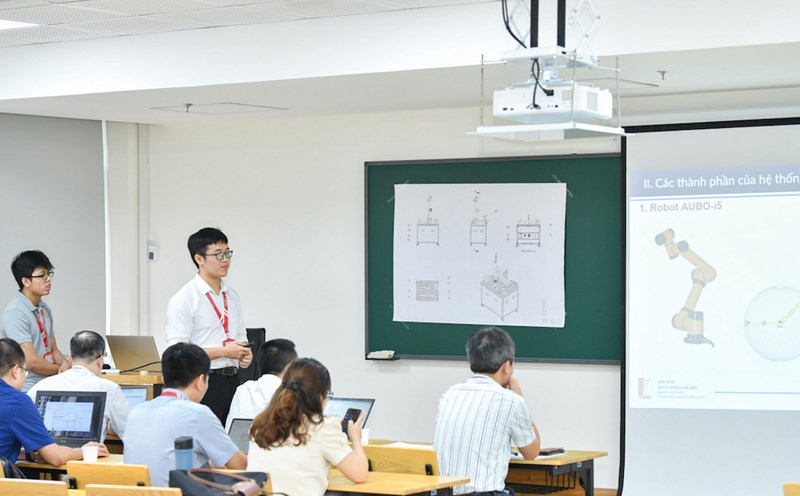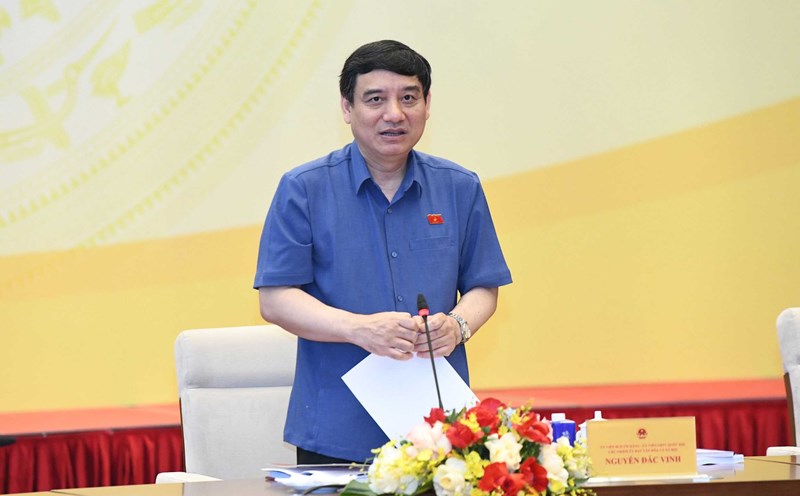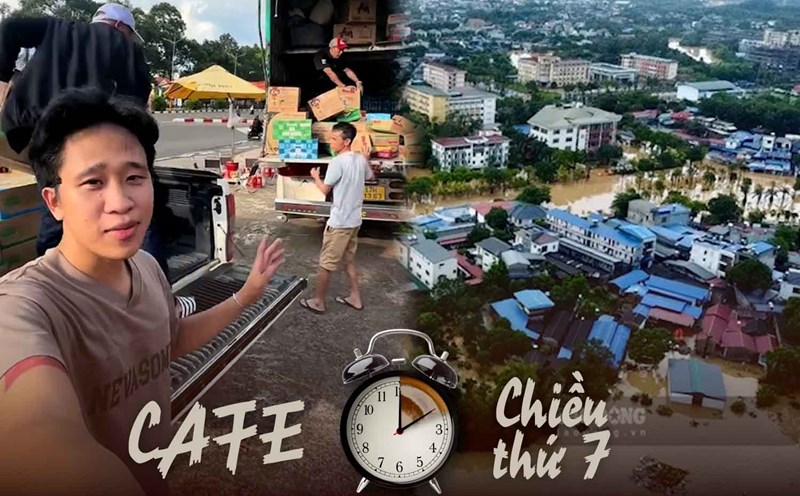From human autonomy to technological autonomy
Immediately after the National Assembly issued a Resolution on the investment policy for the North-South high-speed railway project, the Ministry of Transport (before the merger) has made a plan to request relevant agencies and units to proactively review, develop plans and organize training courses and human resource development to serve railway projects. At the same time, training institutions also need to strengthen cooperation with international organizations, as well as domestic and foreign research units to build in-depth human resource training programs, especially human resources to serve high-speed railway projects and urban railway lines.
To meet the need for high-quality human resource training, the Ministry of Transport requires training institutions to proactively research and strengthen cooperation with international organizations, while improving facilities and training equipment. Coordinating with international organizations and training institutions from countries with developed railway industries will help improve training quality, while creating opportunities for Vietnamese railway industry staff to access advanced technologies.
The North-South high-speed railway is not only a national key infrastructure project, but also a test of the ability to master technology, organization and people. In particular, the most urgent problem at present is urgent training of human resources with sufficient capacity to take on from design, construction to operation.
At the international workshop "Modern technology in designing, constructing, operating and exploiting high-speed railways" held in August 2025, experts all agreed: No matter how modern the technology is, without people who are knowledgeable and mastering, the project will not be successful.
Associate Professor, Dr. Nguyen Van Hung - Principal of the University of Transport - emphasized that when Vietnam enters the preparation stage for the North-South high-speed railway project, access to technology and international standards is a necessary condition, but the sufficient factor lies in people. Without a team of qualified and qualified engineers and experts, we would forever be the ones to follow, dependent on foreign contractors, said Mr. Hung.
Sharing the same view, Mr. Le Trung Thanh - Director of the Department of Science and Technology (Ministry of Construction) - said that high-speed railway is the largest infrastructure project in Vietnam's history, requiring large-scale and highly qualified human resources. From designing, manufacturing, and manufacturing equipment to operation and maintenance, all need a team that is well-trained and has a deep understanding of modern railway technology.
According to the report of the Ministry of Construction, the North-South high-speed railway project alone can create more than 200,000 attractive jobs. Of which, the human resource demand for project management is 700 - 1,000 people, consulting 1,000 - 1,300 people, operating and exploiting nearly 13,880 people and the construction, manufacturing and production of materials and components sector has about 220,000 workers.
To meet this huge demand, about 88 million USD from the project budget will be spent on training: 8 million USD to train State management agencies; 4 million USD to improve lecturer qualifications; 36 million USD to provide scholarships to students in specific majors such as metal detection, mechanical engineering, automation, artificial intelligence and 40 million USD to build shared laboratories for research and development.
Need 35,000 railway workers from now until 2030
According to the Decision approving the Project on training and developing human resources for Vietnam railways until 2035, with a vision to 2045, the Government sets a target: In the period of 2025 - 2030, train at least 35,000 high-quality human resources. Of which, about 1,000 people have postgraduate degrees (including 80 doctors and 920 masters, including 210 lecturers), 14,000 people have university degrees, 11,000 people have college degrees and 9,000 people have intermediate degrees. The training majors focus on railway construction techniques, construction techniques, railway information - signals, electrical and energy systems, locomotives - carriages, construction economics, transportation and railway transport exploitation economics.
In addition, about 5,000 people will be trained and fostered in professional skills to serve the operation, exploitation and maintenance of urban railway lines; at the same time, about 1,500 cadres, civil servants and public employees will be trained and fostered in project management, operation and management knowledge.
In the period of 2031 - 2035, the Project aims to train at least 70,000 human resources, continuing to promote high-quality human resource training. Of which, about 2,000 people have postgraduate degrees (100 doctors and 1,900 masters), 18,000 people have university degrees, 30,000 people have college degrees and 20,000 people have intermediate degrees. The human resources for the operation, exploitation and maintenance of railway lines alone will be up to 40,000 people, including 13,800 people for high-speed railways, 5,000 people for national railways and 21,200 people for urban railways.
By 2045, Vietnam will continue to train and supplement human resources to meet the requirements of implementing large-scale railway projects; at the same time, form a number of training, research and technology transfer centers for modern railways, with regional scale.
To achieve the above goals, the project proposes six key groups of tasks and solutions including: Completing institutions, enhancing capacity for training and research institutions; promoting training and human resource development; developing research capacity, receiving and transferring technology; promoting international cooperation; at the same time mobilizing diverse investment resources, encouraging public-private partnerships (PPP) in training.
According to experts, the biggest risk at present is that Vietnam will fall into a "final" situation if it is not prepared early. Because the training time for a specialized railway engineer takes at least 5-7 years, while pilot projects on the North - South route can start construction from 2028.
That means that, right now, training, admission and scholarship programs need to be implemented urgently. If it is delayed, Vietnam will have to hire foreign experts, which will not only cost cost but also extend the testing operation time.
Another notable point is the issue of retaining talent. Treatment policies, working environment and promotion opportunities in the railway industry need to be strongly improved, so that the team of good engineers can stay with the profession for a long time.












